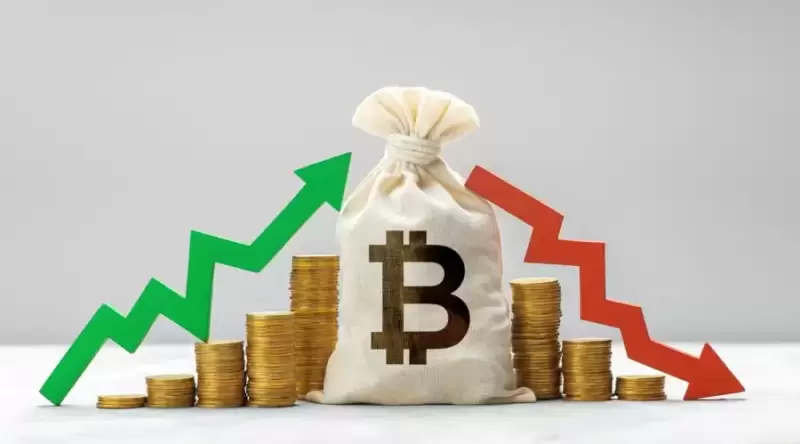 |
|
 |
|
 |
|
 |
|
 |
|
 |
|
 |
|
 |
|
 |
|
 |
|
 |
|
 |
|
 |
|
 |
|
 |
|
Cryptocurrency News Articles
As the crypto sector's eyes are drawn to the policy fireworks in the White House and Congress
Mar 20, 2025 at 11:05 pm
One move at a time, the stand-in chiefs of the banking and securities regulators are cutting away policies and significant enforcement work

While the crypto sector's eyes are drawn to the policy fireworks in the White House and Congress, the financial agencies have been busy taking consequential bites out of the Biden Administration's digital assets stance.
One move at a time, the stand-in chiefs of the banking and securities regulators are cutting away policies and significant enforcement work that had previously been used to hem in the digital assets industry. And a U.S. Securities and Exchange Commission roundtable on Friday will further illuminate the delicate legal approach to defining crypto securities, potentially signaling a path forward.
Despite permanent leaders still awaiting Senate confirmation to take over the SEC, Commodity Futures Trading Commission and the banking agencies, each of the agencies has taken active policy steps that have effectively been clearing the decks to start over on crypto. While that's taking place, greater attention has been devoted to President Donald Trump's effort toward a U.S. bitcoin (BTC) reserve (which doesn't yet come with a plan for acquiring new bitcoin) and Congress' longstanding work toward fully realized U.S. crypto laws (which are seeing strong progress but may take a while to complete).
Adam Pollet, a securities lawyer at Eversheds Sutherland who advises on digital assets projects, called this moment a reset.
"They wanted to sort of clean the slate," he said in an interview, interpreting the SEC's outlook this way: "We're sending you the signal that we want you to go forth and try things, and we won't stand in the way."
At the SEC, several actions have dialed the regulator back to an era sometime before the end of President Donald Trump's first term, when his SEC chief at the time, Jay Clayton, led an enforcement charge against Ripple as an illegal exchange. CEO Brad Garlinghouse said on Wednesday that the agency is dropping that accusation — the latest among several high-profile crypto cases abandoned by the regulator. The SEC is no longer arguing that most crypto tokens are unregistered securities.
But the SEC scrapping its previous enforcement stance doesn't necessarily establish a new policy. It's instead more of a policy vacuum in which the regulator has retreated from the field while it awaits legal reinforcements.
SEC backtracks
The same could be said for the agency's withdrawal of its controversial crypto accounting standard known as Staff Accounting Bulletin No. 121, or SAB 121, or the recent decision to toss out a crypto rulemaking proposal that former Chair Gary Gensler pushed that would have cemented certain digital assets platforms as needing to register with the SEC for handling securities transactions.
Read More: U.S. SEC's Acting Chair Walking Back Agency Proposal on Crypto Trading Platforms
Still, both initiatives were seen by crypto platforms and projects as a potential threat to how they do business, and their speedy removals are re-opening doors for the industry.
"I certainly can't recall a time when something was undone as quickly," Pollet observed of the agency's tempo.
The SEC and CFTC have also taken other actions that could be viewed as more forward-moving. The SEC issued a statement on memecoins, warning investors that they won't be protected if they decide to throw money into those unregulated corners of crypto, explaining that the coins aren't securities and offering thinking to back that assertion. Though it's not a formal regulation, the policy position at least gives the industry a further insight into how the agency's new leadership is evaluating crypto assets, which can be leaned on as companies take on new projects.
"It gives folks more confidence in any decision making," Pollet said. The Republican commissioners seem to suggest, he said, that "they are going to take a more permissive, open-minded approach when it comes to all things crypto."
And at its cousin agency, the derivatives watchdog CFTC, Acting Chair Caroline Pham is trying to build a pilot program on stablecoin-backed tokenization — a long-awaited sandbox approach that lets companies try things without anxiety over regulatory crackdown.
The agency awaits the chairmanship confirmation of former Commissioner Brian Quintenz, who worked as the chief of policy for a16z, a leading digital assets investment firm. Before he'd left the agency in 2021, Quintenz was known for his crypto advocacy.
Bank regulators relax
Meanwhile, banking regulators such as the Office of the Comptroller of the Currency and the Federal Deposit Insurance Corp., which had been accused of improperly trying to keep banks from handling crypto clients, have thrown out previous industry guidance. Earlier this month, the OCC rescinded its policy that told banks that they had to get written approval by federal supervisors before they could get into crypto activities. As a result, banks in the U.S. can feel more free to engage in digital assets, including issuing stablecoins — a new openness already studied carefully by the law firms who advise on such business, such as Debevoise & Plimpton.
At the FDIC, the interim leadership is also "actively
Disclaimer:info@kdj.com
The information provided is not trading advice. kdj.com does not assume any responsibility for any investments made based on the information provided in this article. Cryptocurrencies are highly volatile and it is highly recommended that you invest with caution after thorough research!
If you believe that the content used on this website infringes your copyright, please contact us immediately (info@kdj.com) and we will delete it promptly.





























































